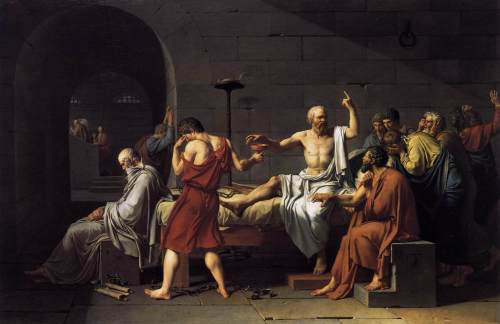One of my recent posts to another discussion board–my apologies for the lack of context, but it is hopefully interesting enough despite it’s contextual isolation:

Everyone should look like this when they try to persuade people.
“I think your remarks and observations are very interesting, and especially for me, the questions about truth. Your distinction between truth and persuasion is well-taken; judges and juries are, in theory, supposed to sift through many different stories and testimony to try to arrive at what happened. I like the way you put it, though—you said that “In this sense, the decision making process in the court room is not about what is legal and what is illegal, but about what sounds more true to juries and judges.” I think that our language shows the way we frame the issue: that people and witnesses may come and tell stories and even tell what they remember of the event, but a judge is asked to weigh these, along with the nature of people and use both reason and common sense to determine which testimony or claim is closest to the truth. We would not speak of it thusly if somewhere, in our assumptions of the world, we did not have an understanding that there was actually something that happened, and that it happened in a certain way, and to know the way it actually happened is called knowing the truth about the event, and knowing it differently than it actually happened is called not knowing the truth. There is a measuring rod that we assume is there, even if we cannot fully know the measuring rod—the Truth. I believe that even if we cannot know the Truth fully, we can know it truly, meaning that we can know things that are true (Not that everything we think we know to be true actually is—we maybe in a state of mind that we call being wrong). We cannot know the Truth in every case, nor can we know the Truth in all its fullness (how exactly did the car hit the pedestrian? What were the motives and thoughts of the driver and the victim? In what way did slight movements affect the outcome?) but we can know the Truth to some degree.
What I firmly reject is the assertion that Truth does not exist. I believe it does exist, and although it may not be able to be known fully, it can be known to some degree. I believe that it is common belief and acceptance of this principle that not only allows people to implement and trust in legal systems, but also allows us to pursue justice in any degree or to get angry at injustice and take action. I would, then, not use the term truth to describe what you did in the field of rhetoric; instead, I would use the same words Aristotle did—words like personal appeal, essential facts, conclusions, knowledge, etc.
I also think that a common mode of (wrong) thinking that many people sometimes fall into (including myself) is that we may say that because, at first inspection, many different statements seem to conflict, then there must be relative truths. While it is not my goal or intention to argue against this here, I am trying to point out that another option, that the circumstances that produced these statements and the statements themselves may possess greater nuance than we may be aware of. I think that often people claim relative truth in a situation because it is much easier to simply accept this idea than it is to continue to investigate all the nuances of the situation, which may be more of a chore than we wish to manage. I know that sometimes it’s more of one than I want to manage.”